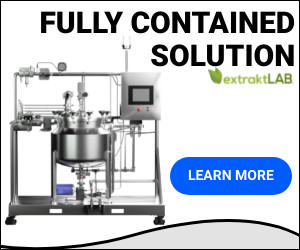Carbon is widely used in the cannabis extraction industry for color remediation and purification of ethanol extracts. Its selectivity for certain color compounds over others makes it a popular choice to enhance the purity, stability, and overall quality of cannabis products. However, not all carbon types are suitable for this process.
Color Remediation with Carbon
In the world of cannabis extraction, achieving a clear and visually appealing product is essential. Color remediation is the process of taking away or lessening undesired colors from extracted oils, like chlorophylls and carotenoids, which can have a detrimental effect on its look, taste, and shelf life. Carbon plays an important role in this process due to its adsorptive properties that selectively bind these undesirable compounds while leaving behind desired cannabinoids like THC or CBD.
Selectivity of Carbon for Specific Compounds
The effectiveness of carbon in removing impurities during cannabis extraction largely depends on its surface area, pore size distribution, and chemical functionality. These factors determine how well it can selectively adsorb specific molecules without affecting other desirable components within your extract.
- Surface Area: A high surface area allows more binding sites for impurities which increases efficiency during color remediation processes.
- Pore Size Distribution: The range of pore sizes present within activated carbons will influence their ability to trap different sized molecules effectively; smaller pores are better suited at capturing small contaminants while larger ones cater towards bulkier substances like chlorophylls or lipids.
- Chemical Functionality: Certain functional groups (e.g., carboxyl, hydroxyl) present on the carbon surface can enhance its selectivity towards specific compounds by forming chemical bonds or through electrostatic interactions.
Understanding these factors are crucial when selecting a suitable carbon type for your cannabis extraction process. To ensure optimal results, it’s essential to choose high-quality carbons with properties tailored specifically for your needs whether that be color remediation, compound removal, or purification within your extracts.
Extractables & Leachables from Carbon
When using carbon in the extraction process, it’s crucial to consider potential extractables and leachables that may contaminate your product. Manufacturers must be aware of these impurities when selecting materials that come into contact with their extracts or active pharmaceutical ingredients (APIs). In this section, we will discuss the importance of understanding impurity profiles, conducting blank tests, as well as choosing high-quality carbons for cannabis extraction.
Impurity Profiles and Blank Tests
An essential step in ensuring a safe and effective cannabis product is understanding the impurity profile of any material used during the extraction process. This includes identifying possible contaminants such as heavy metals, pesticides, or residual solvents that could negatively impact consumer safety. To achieve this level of quality control, manufacturers should conduct blank tests on all materials before incorporating them into their processes.
A blank test, also known as an inert sample analysis, involves analyzing a sample without any added analytes to determine if there are any detectable levels of contamination present within the material itself. By performing these tests regularly throughout production cycles, companies can ensure they maintain stringent quality standards while minimizing risks associated with contaminated products.
The Importance of Choosing High-Quality Carbons
- Purity: Selecting high-purity carbon sources ensures minimal amounts of undesirable byproducts such as heavy metals or combustion residues are introduced during processing stages. This results in cleaner end-products free from harmful substances like lead or arsenic which can pose serious health risks to consumers.
- Efficacy: High-quality carbons offer superior adsorption capabilities, allowing for more efficient removal of unwanted compounds during the extraction process. This ultimately leads to a purer and higher quality cannabis product with improved taste, aroma, and overall user experience.
- Consistency: By choosing a reputable carbon supplier that adheres to strict manufacturing standards and rigorous testing protocols, manufacturers can ensure consistent performance across multiple production batches. Consistent results are crucial in maintaining consumer trust and ensuring regulatory compliance within the ever-evolving cannabis industry.
In conclusion, understanding extractables and leachables from carbon is essential for producing safe and high-quality cannabis products. Manufacturers should prioritize conducting impurity profile assessments as well as selecting high-purity carbons to minimize risks associated with contamination while maximizing product efficacy and consistency.
Types of Carbon and Their Byproducts
There are various types of carbon available on the market derived from different sources such as coconut shells or bitumen. Each type comes with its own set of byproducts including heavy metals, pesticides, and combustion byproducts like aromatic hydrocarbons which can pose risks if used improperly during cannabis extraction processes.
Coconut shell-based activated carbons
Coconut shell-based activated carbons are widely used in the cannabis industry due to their high adsorption capacity and selectivity for certain compounds. These carbons have a large surface area that allows them to efficiently remove impurities from extracts. However, it is essential to ensure that these materials do not introduce any contaminants into your product.
- Potential heavy metal contamination: Some coconut shell-based carbons may contain trace amounts of heavy metals like lead or arsenic. It’s crucial to choose a reputable supplier who tests their products for potential contaminants before use in cannabis extraction processes.
- Pesticide residues: Coconut shells can also carry pesticide residues if they were treated with chemicals during cultivation. Make sure you source your carbon from suppliers who provide detailed information about the origin and treatment history of their raw materials.
Bitumen-derived carbons
In contrast, bitumen-derived carbons, also known as petroleum pitch-based activated carbon (PPAC), come from non-renewable fossil fuel sources like coal tar or petroleum pitch. While they may offer some advantages over coconut shell-based carbons in terms of cost and availability, they also come with their own set of drawbacks:
- Bitumen-derived carbons may introduce carcinogenic substances like polycyclic aromatic hydrocarbons (PAHs) into cannabis extracts, making it essential to ensure their safety. It is essential to ensure that these materials do not introduce any harmful substances into your cannabis extracts.
- The manufacturing of bitumen-derived carbons can cause a notable ecological effect, with the emission of greenhouse gases and other toxins. Choosing sustainable carbon sources like coconut shells can help reduce your company’s overall carbon footprint.
Conclusion
In conclusion, cannabis extraction carbon is a versatile and effective way to extract cannabinoids from plant material. The various types of carbon used in this process have their own unique byproducts that can be useful for other applications. It’s essential to research beforehand and ensure that the carbon used is suitable for GRAS before using it in any procedures or products. Thoroughly evaluating the type of carbon utilized can guarantee a successful extraction process with minimal ecological effects.
If you are looking for a reliable and efficient solution to your botanical extraction needs, then extraktLAB is the perfect choice. Our cutting-edge extraction technology can take your extracts to the next level and ensure consistency and quality every time.
With the guidance of industry leaders, we provide professional advice to help you achieve success. If this interests you, call us at 651.600.0036 or fill out our form below, and a representative will contact you as soon as possible.
Get in touch with our team to request a quote, learn more about our facility design services, or get help with your business plan.
We are dedicated to providing you with the best advice, quality, and service in the industry.



